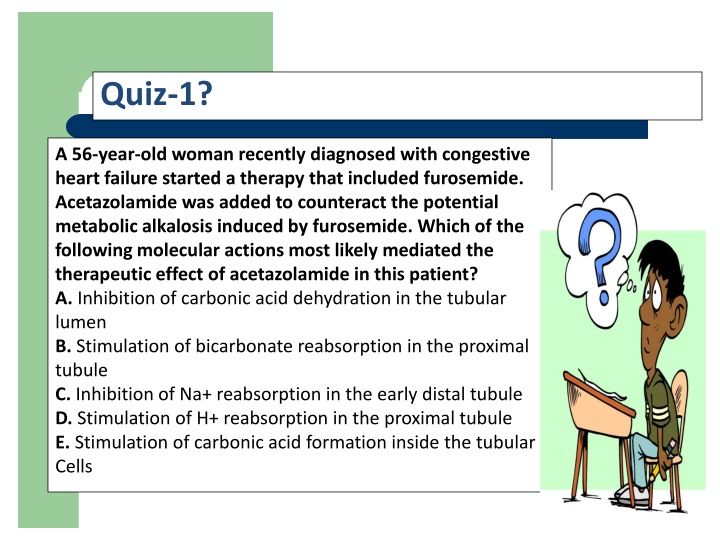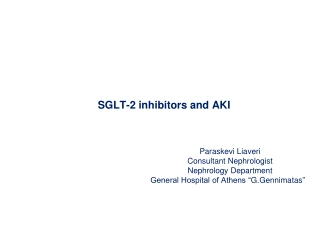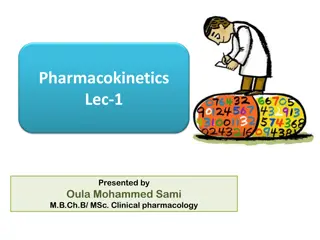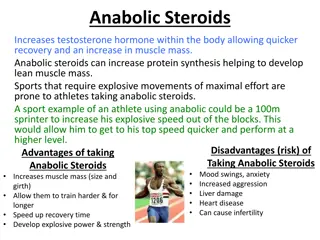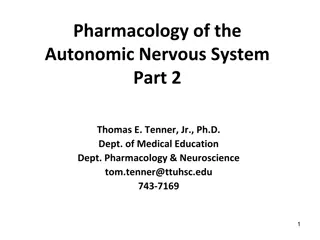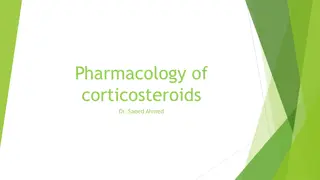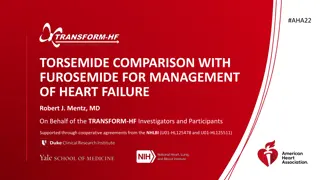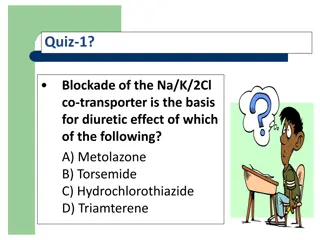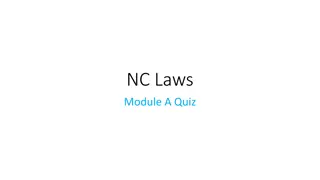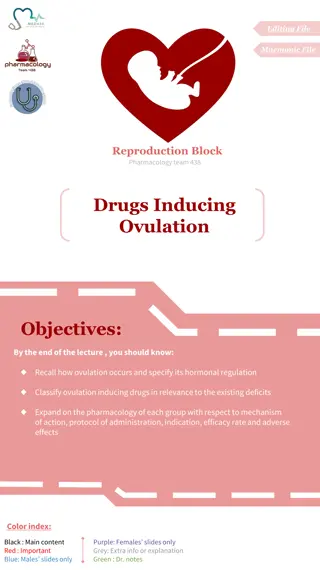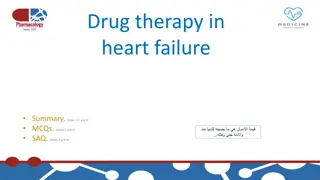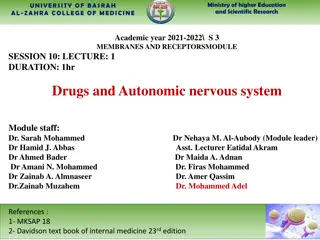Pharmacology Quizzes on Diuretics and Their Clinical Applications
This content presents a series of quizzes involving diuretics and their role in clinical scenarios related to heart failure, glaucoma, renal hemodynamics, and intracranial pressure. Questions cover various diuretic agents such as furosemide, acetazolamide, mannitol, and hydrochlorothiazide, focusing on their mechanisms of action and appropriateness in different patient scenarios. Test your knowledge of diuretics and their pharmacological effects through these challenging quizzes.
Download Presentation

Please find below an Image/Link to download the presentation.
The content on the website is provided AS IS for your information and personal use only. It may not be sold, licensed, or shared on other websites without obtaining consent from the author.If you encounter any issues during the download, it is possible that the publisher has removed the file from their server.
You are allowed to download the files provided on this website for personal or commercial use, subject to the condition that they are used lawfully. All files are the property of their respective owners.
The content on the website is provided AS IS for your information and personal use only. It may not be sold, licensed, or shared on other websites without obtaining consent from the author.
E N D
Presentation Transcript
Quiz-1? A 56-year-old woman recently diagnosed with congestive heart failure started a therapy that included furosemide. Acetazolamide was added to counteract the potential metabolic alkalosis induced by furosemide. Which of the following molecular actions most likely mediated the therapeutic effect of acetazolamide in this patient? A. Inhibition of carbonic acid dehydration in the tubular lumen B. Stimulation of bicarbonate reabsorption in the proximal tubule C. Inhibition of Na+ reabsorption in the early distal tubule D. Stimulation of H+ reabsorption in the proximal tubule E. Stimulation of carbonic acid formation inside the tubular Cells
Quiz-2? A 57-year-old Black woman, recently diagnosed with closed-angle glaucoma, was scheduled for iridectomy. Which of the following agents was most likely given intravenously before and after surgery to reduce intraocular pressure? A. Furosemide B. Triamterene C. Mannitol D. Hydrochlorothiazide E. Homatropine
Quiz-3? Of the following agents, which one is best avoided in congestive heart failure? A) acetazolamide B) hydrochlorothiazide C) mannitol D) furosemide
Quiz-4? Which of the following agents decrease excretion of chloride ions? A) furosemide B) hydrochlorothiazide C) mannitol D) acetazolamide
Quiz-5? A patient with a compromised renal hemodynamic was given a trial of mannitol. Which of the following is least likely to be associated with the effect of mannitol? A) retention of water in tubular fluid B) ability to be metabolized into an active metabolite C) capacity to be freely filtered D) ability to resist complete reabsorption by kidney tubules
Quiz-6? A 27-year-old woman with a history of high altitude sickness was placed on prophylactic treatment with a diuretic drug prior to going on a hiking trip in Abha Mountains. Which of the following urine electrolyte profiles is most consistent with this drug treatment?
Quiz-7? A patient presents to the emergency department with an extreme headache. After a thorough workup, the attending physician concludes that the pain is due to increased intracranial pressure. Which diuretic would work best to reduce this pressure? A. Acetazolamide. B. Indapamide. C. Furosemide. D. Hydrochlorothiazide. E. Mannitol.
Quiz-8? Which of the following statements is wrong about mannitol? a. It inhibits water reabsorption in the proximal tubule b. It is not used to treat cardiac, renal or hepatic edema c. It is contraindicated in acute left ventricular failure d. It is contraindicated in patients with increased intracranial pressure
Quiz-9? A 69-year-old man with a 10-year history of glaucoma was admitted to the emergency department after he took several tablets of one of his medications in a suicidal attempt. The patient was drowsy & complained of nausea, paresthesias & tiredness. Lab test indicated hyperchloremic metabolic acidosis. Which of the following medications might have caused the patient s symptoms? a. Mannitol b. Timolol c. Acetazolamide d. Pilocarpine
Quiz-10? Which of the following is a current therapeutic indication of acetazolamide? A. Congestive heart failure B. Renal insufficiency C. Cirrhosis of liver D. Glaucoma
